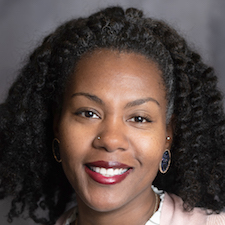 The University of Phoenix was established in 1976 to serve the needs of nontraditional college students, many of whom worked fulltime and wanted to take classes at night and on weekends. Today, the university has 200 locations throughout the United States and many degree programs are available online. Total enrollments at the University of Phoenix reached as high as 600,000 students but there has been a significant drop during the recent recession.
The University of Phoenix was established in 1976 to serve the needs of nontraditional college students, many of whom worked fulltime and wanted to take classes at night and on weekends. Today, the university has 200 locations throughout the United States and many degree programs are available online. Total enrollments at the University of Phoenix reached as high as 600,000 students but there has been a significant drop during the recent recession.
The university recently released its 2011 academic report. The data shows that African Americans make up 18.4 percent of all students at the University of Phoenix. African Americans are 17.7 percent of the undergraduate students and 22.0 percent of all graduate students at the University of Phoenix. In contrast, Blacks are 13 percent of all students enrolled in higher education in the United States and only 10.4 percent of all graduate students.
African Americans are also well represented on the University of Phoenix faculty. Nationwide, Blacks make up about 6 percent of all faculty members. But at the University of Phoenix, Blacks make up 18.6 percent of the total faculty, three times the level of American higher education as a whole.











I have been anticipating a study about the University of Phoenix and how it correlates to Blacks and it seems to be a milestone achievement compared to any other non-traditional college or university. UOP offers so much to the working mother or husband who lives are to busy to maintain a traditional college or university setting. The flexibility of UOPS classes is great for a working person. A busy lifestyle can catch a break with UOPS flexible classe. You can go to class anytime you like and do your work like any other student but they do have deadlines. I will second the fact that UOP has a high percentage of Blacks on the faculty. I also have notice a rise in Blacks attending UOP. I am myself a Phoenix and I will be obtaining my Bachelors of Science in Psychology this December. I can truly say it has been a great experience being educated by Professors from all over the nation and interacting with the other students all over the world. I once felt that their degree wouldn’t be honored in the real world because it was all done online but now I have notice that the educational world and business has taken another look at it, and noticed its place of committment.
Awesome info Victor, thank you for sharing. I am almost done with my associates in psychology, six more weeks to go and starting the bachelor’s program a week later. I am enjoying my learning experience as well as the flexibility, as I do work full-time, and thank goodness online learning allows me to do school work while I’m at work too. I couldn’t think of a better university to attend.